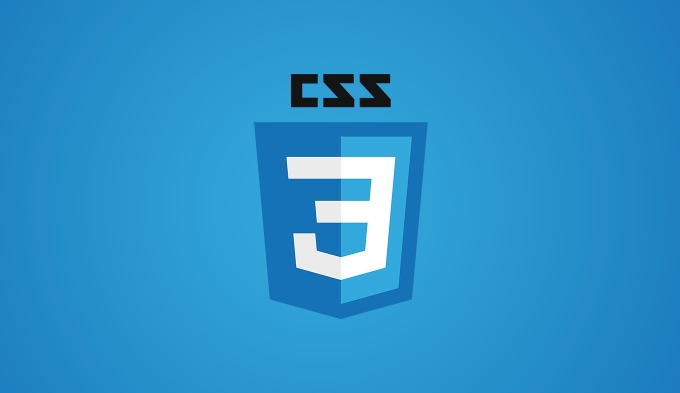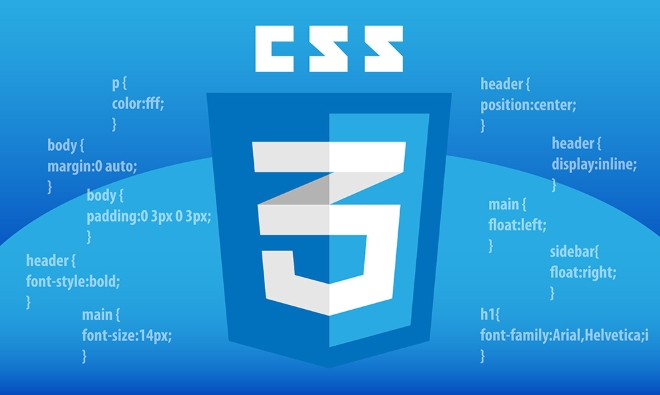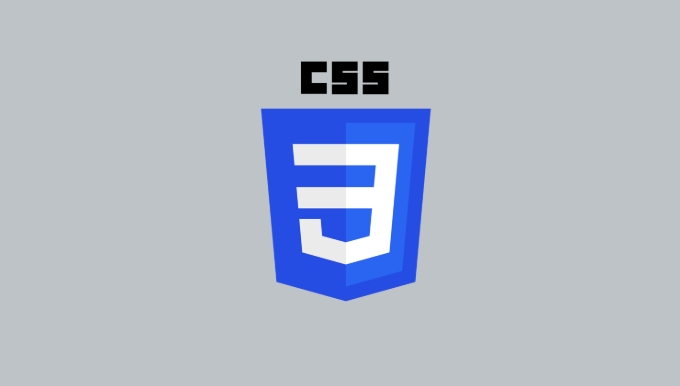Content goes here...<\/p>\n \n
Scroll down to see the sticky effect.<\/p>\n <\/main>\n<\/body>\n<\/html><\/pre>
Key Points to Remember<\/h3>\n\n-
position: sticky<\/code> works best on direct children of the normal document flow.<\/li>\n- It only sticks within its parent container's bounds.<\/li>\n
- Always set a
top<\/code> (or bottom<\/code> , left<\/code> , right<\/code> ) value—otherwise, it won't stick.<\/li>\n- Test in your target browsers (it's widely supported in modern ones).<\/li>\n<\/ul>\n
Basically, just use position: sticky<\/code> with top: 0<\/code> , and you're good to go. It's that simple.<\/p>"}
亚洲国产日韩欧美一区二区三区,精品亚洲国产成人av在线,国产99视频精品免视看7,99国产精品久久久久久久成人热,欧美日韩亚洲国产综合乱
To create a sticky header, just use CSS's position: sticky; first apply position: sticky to the head element and set top: 0 to fix it when scrolling to the top of the viewport; make sure that the parent container does not have properties that disable sticky behavior, such as overflow: hidden or transform; to improve visual effects, background colors, box-shadow, z-index and transition animations can be added; finally verify that the HTML structure is correct and the content is enough to trigger scrolling. This method is widely supported in modern browsers and can be implemented without JavaScript.

Creating a sticky header with CSS is simple and doesn't require JavaScript in most cases. You can achieve it using the position: sticky property. Here's how to do it step by step.

Use position: sticky on the Header
The key is to apply position: sticky to your header element and set a top value (usually 0 ) to define when it should stick to the top of the viewport.
header {
position: sticky;
top: 0;
background-color: white; /* Prevents content from showing through */
z-index: 100; /* Keeps it above other content */
} This tells the browser: “Stick this element to the top of the viewport once it reaches that position during scrolling.”

Make Sure the Parent Doesn't Limit the Behavior
position: sticky only works if the element is not inside a parent with overflow: hidden , overflow: auto , or transform applied—unless that container is the scrolling container itself. So avoid:
.parent {
overflow: hidden; /* This can break sticky positioning */
} If you need scrolling inside a container (not the whole page), apply sticky within that scrollable container.

Add Visual Polish
A sticky header should feel smooth and professional. Consider adding:
- A subtle box shadow to separate it from the content
- A background color to prevent text from overlapping underneath
- A
z-index so it stays on top
header {
position: sticky;
top: 0;
background: #ffff;
box-shadow: 0 2px 5px rgba(0, 0, 0, 0.1);
z-index: 100;
padding: 1rem;
transition: background 0.3s; /* Optional: smooth effects */
} Example HTML Structure
<!DOCTYPE html>
<html lang="en">
<head>
<meta charset="UTF-8" />
<title>Sticky Header</title>
<link rel="stylesheet" href="styles.css" />
</head>
<body>
<header>
<h1>My Sticky Header</h1>
</header>
<main>
<p>Content goes here...</p>
<!-- Add enough content to enable scrolling -->
<p style="height: 150vh;">Scroll down to see the sticky effect.</p>
</main>
</body>
</html> Key Points to Remember
-
position: sticky works best on direct children of the normal document flow.
- It only sticks within its parent container's bounds.
- Always set a
top (or bottom , left , right ) value—otherwise, it won't stick.
- Test in your target browsers (it's widely supported in modern ones).
Basically, just use position: sticky with top: 0 , and you're good to go. It's that simple.
The above is the detailed content of How to create a sticky header with CSS?. For more information, please follow other related articles on the PHP Chinese website!
Statement of this Website
The content of this article is voluntarily contributed by netizens, and the copyright belongs to the original author. This site does not assume corresponding legal responsibility. If you find any content suspected of plagiarism or infringement, please contact admin@php.cn

Hot AI Tools

Undress AI Tool
Undress images for free

Undresser.AI Undress
AI-powered app for creating realistic nude photos

AI Clothes Remover
Online AI tool for removing clothes from photos.

Clothoff.io
AI clothes remover

Video Face Swap
Swap faces in any video effortlessly with our completely free AI face swap tool!

Hot Article
Agnes Tachyon Build Guide | A Pretty Derby Musume
1 months ago
By Jack chen
Grass Wonder Build Guide | Uma Musume Pretty Derby
3 weeks ago
By Jack chen
Roblox: 99 Nights In The Forest - All Badges And How To Unlock Them
3 weeks ago
By DDD
Uma Musume Pretty Derby Banner Schedule (July 2025)
3 weeks ago
By Jack chen

Hot Tools

Notepad++7.3.1
Easy-to-use and free code editor

SublimeText3 Chinese version
Chinese version, very easy to use

Zend Studio 13.0.1
Powerful PHP integrated development environment

Dreamweaver CS6
Visual web development tools

SublimeText3 Mac version
God-level code editing software (SublimeText3)

Hot Topics
 What is Autoprefixer and how does it work?
Jul 02, 2025 am 01:15 AM
What is Autoprefixer and how does it work?
Jul 02, 2025 am 01:15 AM
Autoprefixer is a tool that automatically adds vendor prefixes to CSS attributes based on the target browser scope. 1. It solves the problem of manually maintaining prefixes with errors; 2. Work through the PostCSS plug-in form, parse CSS, analyze attributes that need to be prefixed, and generate code according to configuration; 3. The usage steps include installing plug-ins, setting browserslist, and enabling them in the build process; 4. Notes include not manually adding prefixes, keeping configuration updates, prefixes not all attributes, and it is recommended to use them with the preprocessor.
 CSS tutorial for creating a sticky header or footer
Jul 02, 2025 am 01:04 AM
CSS tutorial for creating a sticky header or footer
Jul 02, 2025 am 01:04 AM
TocreatestickyheadersandfooterswithCSS,useposition:stickyforheaderswithtopvalueandz-index,ensuringparentcontainersdon’trestrictit.1.Forstickyheaders:setposition:sticky,top:0,z-index,andbackgroundcolor.2.Forstickyfooters,betteruseposition:fixedwithbot
 CSS tutorial for creating loading spinners and animations
Jul 07, 2025 am 12:07 AM
CSS tutorial for creating loading spinners and animations
Jul 07, 2025 am 12:07 AM
There are three ways to create a CSS loading rotator: 1. Use the basic rotator of borders to achieve simple animation through HTML and CSS; 2. Use a custom rotator of multiple points to achieve the jump effect through different delay times; 3. Add a rotator in the button and switch classes through JavaScript to display the loading status. Each approach emphasizes the importance of design details such as color, size, accessibility and performance optimization to enhance the user experience.
 CSS tutorial focusing on mobile-first design
Jul 02, 2025 am 12:52 AM
CSS tutorial focusing on mobile-first design
Jul 02, 2025 am 12:52 AM
Mobile-firstCSSdesignrequiressettingtheviewportmetatag,usingrelativeunits,stylingfromsmallscreensup,optimizingtypographyandtouchtargets.First,addtocontrolscaling.Second,use%,em,orreminsteadofpixelsforflexiblelayouts.Third,writebasestylesformobile,the
 How to create an intrinsically responsive grid layout?
Jul 02, 2025 am 01:19 AM
How to create an intrinsically responsive grid layout?
Jul 02, 2025 am 01:19 AM
To create an intrinsic responsive grid layout, the core method is to use CSSGrid's repeat(auto-fit,minmax()) mode; 1. Set grid-template-columns:repeat(auto-fit,minmax(200px,1fr)) to let the browser automatically adjust the number of columns and limit the minimum and maximum widths of each column; 2. Use gap to control grid spacing; 3. The container should be set to relative units such as width:100%, and use box-sizing:border-box to avoid width calculation errors and center them with margin:auto; 4. Optionally set the row height and content alignment to improve visual consistency, such as row
 How to center an entire grid within the viewport?
Jul 02, 2025 am 12:53 AM
How to center an entire grid within the viewport?
Jul 02, 2025 am 12:53 AM
To make the entire grid layout centered in the viewport, it can be achieved by the following methods: 1. Use margin:0auto to achieve horizontal centering, and the container needs to be set to set the fixed width, which is suitable for fixed layout; 2. Use Flexbox to set the justify-content and align-items properties in the outer container, and combine min-height:100vh to achieve vertical and horizontal centering, which is suitable for full-screen display scenarios; 3. Use CSSGrid's place-items property to quickly center on the parent container, which is simple and has good support from modern browsers, and at the same time, it is necessary to ensure that the parent container has sufficient height. Each method has applicable scenarios and restrictions, just choose the appropriate solution according to actual needs.
 What is feature detection in CSS using @supports?
Jul 02, 2025 am 01:14 AM
What is feature detection in CSS using @supports?
Jul 02, 2025 am 01:14 AM
FeaturedetectioninCSSusing@supportschecksifabrowsersupportsaspecificfeaturebeforeapplyingrelatedstyles.1.ItusesconditionalCSSblocksbasedonproperty-valuepairs,suchas@supports(display:grid).2.Thismethodensuresfuturecompatibilityandavoidsrelianceonunrel
 Addressing CSS Browser Compatibility issues and prefixes
Jul 07, 2025 am 01:44 AM
Addressing CSS Browser Compatibility issues and prefixes
Jul 07, 2025 am 01:44 AM
To deal with CSS browser compatibility and prefix issues, you need to understand the differences in browser support and use vendor prefixes reasonably. 1. Understand common problems such as Flexbox and Grid support, position:sticky invalid, and animation performance is different; 2. Check CanIuse confirmation feature support status; 3. Correctly use -webkit-, -moz-, -ms-, -o- and other manufacturer prefixes; 4. It is recommended to use Autoprefixer to automatically add prefixes; 5. Install PostCSS and configure browserslist to specify the target browser; 6. Automatically handle compatibility during construction; 7. Modernizr detection features can be used for old projects; 8. No need to pursue consistency of all browsers,
See all articles

position: sticky<\/code> works best on direct children of the normal document flow.<\/li>\n- It only sticks within its parent container's bounds.<\/li>\n
- Always set a
top<\/code> (or bottom<\/code> , left<\/code> , right<\/code> ) value—otherwise, it won't stick.<\/li>\n- Test in your target browsers (it's widely supported in modern ones).<\/li>\n<\/ul>\n
Basically, just use position: sticky<\/code> with top: 0<\/code> , and you're good to go. It's that simple.<\/p>"}
亚洲国产日韩欧美一区二区三区,精品亚洲国产成人av在线,国产99视频精品免视看7,99国产精品久久久久久久成人热,欧美日韩亚洲国产综合乱
To create a sticky header, just use CSS's position: sticky; first apply position: sticky to the head element and set top: 0 to fix it when scrolling to the top of the viewport; make sure that the parent container does not have properties that disable sticky behavior, such as overflow: hidden or transform; to improve visual effects, background colors, box-shadow, z-index and transition animations can be added; finally verify that the HTML structure is correct and the content is enough to trigger scrolling. This method is widely supported in modern browsers and can be implemented without JavaScript.

Creating a sticky header with CSS is simple and doesn't require JavaScript in most cases. You can achieve it using the position: sticky property. Here's how to do it step by step.

Use position: sticky on the Header
The key is to apply position: sticky to your header element and set a top value (usually 0 ) to define when it should stick to the top of the viewport.
header {
position: sticky;
top: 0;
background-color: white; /* Prevents content from showing through */
z-index: 100; /* Keeps it above other content */
} This tells the browser: “Stick this element to the top of the viewport once it reaches that position during scrolling.”

Make Sure the Parent Doesn't Limit the Behavior
position: sticky only works if the element is not inside a parent with overflow: hidden , overflow: auto , or transform applied—unless that container is the scrolling container itself. So avoid:
.parent {
overflow: hidden; /* This can break sticky positioning */
} If you need scrolling inside a container (not the whole page), apply sticky within that scrollable container.

Add Visual Polish
A sticky header should feel smooth and professional. Consider adding:
- A subtle box shadow to separate it from the content
- A background color to prevent text from overlapping underneath
- A
z-index so it stays on top
header {
position: sticky;
top: 0;
background: #ffff;
box-shadow: 0 2px 5px rgba(0, 0, 0, 0.1);
z-index: 100;
padding: 1rem;
transition: background 0.3s; /* Optional: smooth effects */
} Example HTML Structure
<!DOCTYPE html>
<html lang="en">
<head>
<meta charset="UTF-8" />
<title>Sticky Header</title>
<link rel="stylesheet" href="styles.css" />
</head>
<body>
<header>
<h1>My Sticky Header</h1>
</header>
<main>
<p>Content goes here...</p>
<!-- Add enough content to enable scrolling -->
<p style="height: 150vh;">Scroll down to see the sticky effect.</p>
</main>
</body>
</html> Key Points to Remember
-
position: sticky works best on direct children of the normal document flow.
- It only sticks within its parent container's bounds.
- Always set a
top (or bottom , left , right ) value—otherwise, it won't stick.
- Test in your target browsers (it's widely supported in modern ones).
Basically, just use position: sticky with top: 0 , and you're good to go. It's that simple.
The above is the detailed content of How to create a sticky header with CSS?. For more information, please follow other related articles on the PHP Chinese website!
Statement of this Website
The content of this article is voluntarily contributed by netizens, and the copyright belongs to the original author. This site does not assume corresponding legal responsibility. If you find any content suspected of plagiarism or infringement, please contact admin@php.cn

Hot AI Tools

Undress AI Tool
Undress images for free

Undresser.AI Undress
AI-powered app for creating realistic nude photos

AI Clothes Remover
Online AI tool for removing clothes from photos.

Clothoff.io
AI clothes remover

Video Face Swap
Swap faces in any video effortlessly with our completely free AI face swap tool!

Hot Article
Agnes Tachyon Build Guide | A Pretty Derby Musume
1 months ago
By Jack chen
Grass Wonder Build Guide | Uma Musume Pretty Derby
3 weeks ago
By Jack chen
Roblox: 99 Nights In The Forest - All Badges And How To Unlock Them
3 weeks ago
By DDD
Uma Musume Pretty Derby Banner Schedule (July 2025)
3 weeks ago
By Jack chen

Hot Tools

Notepad++7.3.1
Easy-to-use and free code editor

SublimeText3 Chinese version
Chinese version, very easy to use

Zend Studio 13.0.1
Powerful PHP integrated development environment

Dreamweaver CS6
Visual web development tools

SublimeText3 Mac version
God-level code editing software (SublimeText3)

Hot Topics
 What is Autoprefixer and how does it work?
Jul 02, 2025 am 01:15 AM
What is Autoprefixer and how does it work?
Jul 02, 2025 am 01:15 AM
Autoprefixer is a tool that automatically adds vendor prefixes to CSS attributes based on the target browser scope. 1. It solves the problem of manually maintaining prefixes with errors; 2. Work through the PostCSS plug-in form, parse CSS, analyze attributes that need to be prefixed, and generate code according to configuration; 3. The usage steps include installing plug-ins, setting browserslist, and enabling them in the build process; 4. Notes include not manually adding prefixes, keeping configuration updates, prefixes not all attributes, and it is recommended to use them with the preprocessor.
 CSS tutorial for creating a sticky header or footer
Jul 02, 2025 am 01:04 AM
CSS tutorial for creating a sticky header or footer
Jul 02, 2025 am 01:04 AM
TocreatestickyheadersandfooterswithCSS,useposition:stickyforheaderswithtopvalueandz-index,ensuringparentcontainersdon’trestrictit.1.Forstickyheaders:setposition:sticky,top:0,z-index,andbackgroundcolor.2.Forstickyfooters,betteruseposition:fixedwithbot
 CSS tutorial for creating loading spinners and animations
Jul 07, 2025 am 12:07 AM
CSS tutorial for creating loading spinners and animations
Jul 07, 2025 am 12:07 AM
There are three ways to create a CSS loading rotator: 1. Use the basic rotator of borders to achieve simple animation through HTML and CSS; 2. Use a custom rotator of multiple points to achieve the jump effect through different delay times; 3. Add a rotator in the button and switch classes through JavaScript to display the loading status. Each approach emphasizes the importance of design details such as color, size, accessibility and performance optimization to enhance the user experience.
 CSS tutorial focusing on mobile-first design
Jul 02, 2025 am 12:52 AM
CSS tutorial focusing on mobile-first design
Jul 02, 2025 am 12:52 AM
Mobile-firstCSSdesignrequiressettingtheviewportmetatag,usingrelativeunits,stylingfromsmallscreensup,optimizingtypographyandtouchtargets.First,addtocontrolscaling.Second,use%,em,orreminsteadofpixelsforflexiblelayouts.Third,writebasestylesformobile,the
 How to create an intrinsically responsive grid layout?
Jul 02, 2025 am 01:19 AM
How to create an intrinsically responsive grid layout?
Jul 02, 2025 am 01:19 AM
To create an intrinsic responsive grid layout, the core method is to use CSSGrid's repeat(auto-fit,minmax()) mode; 1. Set grid-template-columns:repeat(auto-fit,minmax(200px,1fr)) to let the browser automatically adjust the number of columns and limit the minimum and maximum widths of each column; 2. Use gap to control grid spacing; 3. The container should be set to relative units such as width:100%, and use box-sizing:border-box to avoid width calculation errors and center them with margin:auto; 4. Optionally set the row height and content alignment to improve visual consistency, such as row
 How to center an entire grid within the viewport?
Jul 02, 2025 am 12:53 AM
How to center an entire grid within the viewport?
Jul 02, 2025 am 12:53 AM
To make the entire grid layout centered in the viewport, it can be achieved by the following methods: 1. Use margin:0auto to achieve horizontal centering, and the container needs to be set to set the fixed width, which is suitable for fixed layout; 2. Use Flexbox to set the justify-content and align-items properties in the outer container, and combine min-height:100vh to achieve vertical and horizontal centering, which is suitable for full-screen display scenarios; 3. Use CSSGrid's place-items property to quickly center on the parent container, which is simple and has good support from modern browsers, and at the same time, it is necessary to ensure that the parent container has sufficient height. Each method has applicable scenarios and restrictions, just choose the appropriate solution according to actual needs.
 What is feature detection in CSS using @supports?
Jul 02, 2025 am 01:14 AM
What is feature detection in CSS using @supports?
Jul 02, 2025 am 01:14 AM
FeaturedetectioninCSSusing@supportschecksifabrowsersupportsaspecificfeaturebeforeapplyingrelatedstyles.1.ItusesconditionalCSSblocksbasedonproperty-valuepairs,suchas@supports(display:grid).2.Thismethodensuresfuturecompatibilityandavoidsrelianceonunrel
 Addressing CSS Browser Compatibility issues and prefixes
Jul 07, 2025 am 01:44 AM
Addressing CSS Browser Compatibility issues and prefixes
Jul 07, 2025 am 01:44 AM
To deal with CSS browser compatibility and prefix issues, you need to understand the differences in browser support and use vendor prefixes reasonably. 1. Understand common problems such as Flexbox and Grid support, position:sticky invalid, and animation performance is different; 2. Check CanIuse confirmation feature support status; 3. Correctly use -webkit-, -moz-, -ms-, -o- and other manufacturer prefixes; 4. It is recommended to use Autoprefixer to automatically add prefixes; 5. Install PostCSS and configure browserslist to specify the target browser; 6. Automatically handle compatibility during construction; 7. Modernizr detection features can be used for old projects; 8. No need to pursue consistency of all browsers,
See all articles




























